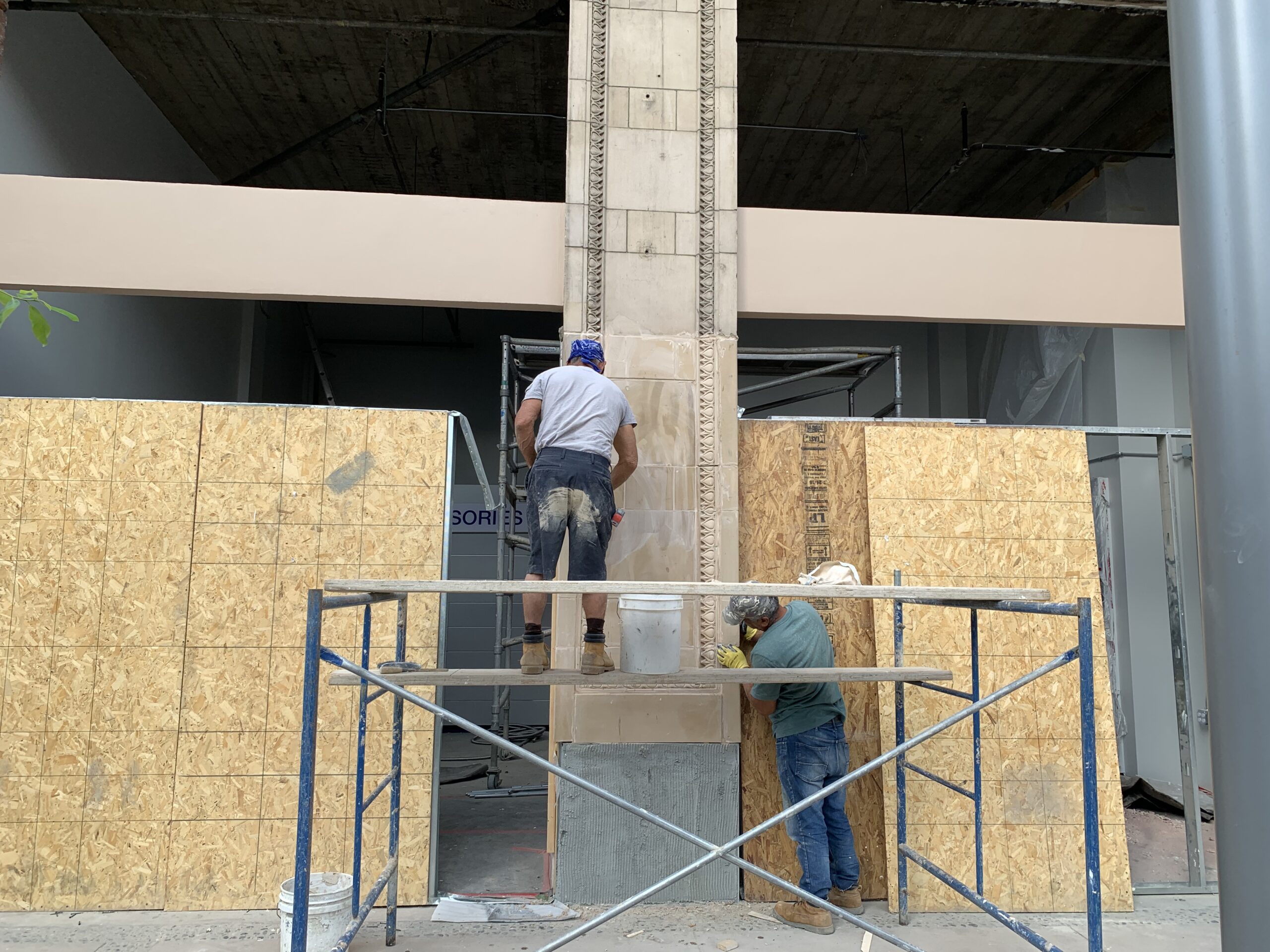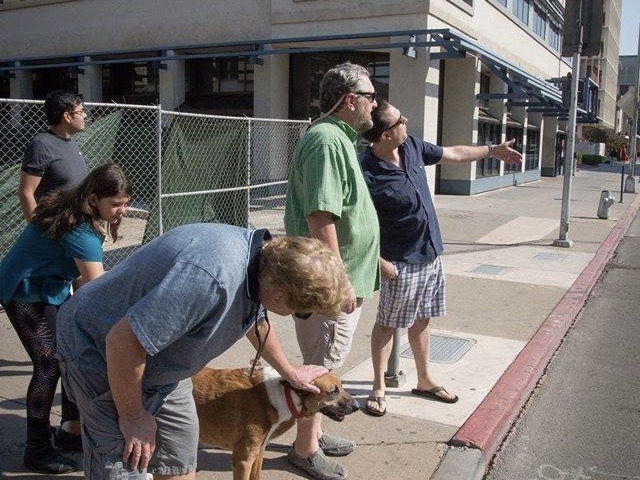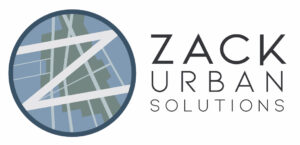Cities are social, political, and environmental entities, but first and foremost they are economic entities. The other functions are vital, but without the economic base they won’t thrive and they may not even exist. Planning for a robust economic foundation for your community is difficult but crucial work. A lot of economic developers rightly focus on business attraction, retention, and expansion, but there are other elements of economic development that some overlook. Zoning codes and entitlement approval processes can inadvertently stifle the development of buildings that the attracted/expanded/retained businesses need in order to function. Housing shortages and mandatory automobile ownership brought about by bad plans and codes can needlessly increase household expenses and erase wage growth. Finally, many communities ignore the power for economic development through placemaking. Creating beautiful public spaces and vibrant walkable urban centers can help your community’s economy develop by slowing down the brain drain of young professionals seeking an urban lifestyle in Portland or New York and can attract the companies who seek to employ such workers.
Examples of Zack’s economic development work include:
Downtown Development Czar
Year(s): 2021
Role: City Staff
Jurisdiction: City of Fresno

During his final year with the City of Fresno, Mr. Zack was asked to lead incoming Mayor Dyer’s ambitus Downtown revitalization program. The Mayor understood the critical importance of development, particularly housing, to the long-term viability of Downtown, and Downtown’s importance to the success of the entire city. He set a goal of producing 3,500 units in the city center by the end of the decade. Mr. Zack worked with property owners, investors, and developers to put together viable project teams and help all involved understand the immense potential of infill housing. He assisted pipeline projects with design matters and entitlement processing, and he worked with the sponsors of defunct proposals to reactive the projects. When he left the position 166 units were under construction, nearly 400 were under review, and over 1,000 were in early stages of design and site selection.
Small Developer Training Program
Year(s): 2021
Role: City Staff
Jurisdiction: City of Fresno
Mr. Zack conceived of and organized this program, which provided training to local residents interested in developing small infill projects. Infill projects had been moving forward in Fresno, but there was a need for a significant increase in activity. With local development knowledge concentrated in a small number of developers who were experienced with greenfield development, it became apparent that there was a need to train a new generation of developers committed to sustainable, context-sensitive, and equitable infill projects. The training was provided by the Incremental Development Alliance. An introductory seminar was held in March, with over 100 members of the community in attendance. In September, 20 residents attended a month-long advanced-level boot camp which was intended to prepare them to submit plans for permits and to pitch their projects to investors and lenders. Several students have development projects in progress.
Additional Information:
Corridor Revitalization Strategy
Year(s): 2018 to 2019
Role: City Staff
Jurisdiction: City of Fresno
Fresno’s major street commercial corridors tie the community together. They are the paths that Fresnans travel to get from neighborhood to neighborhood and move across the entire city. Visitors from other areas may never wander into local residential streets, and their entire impression of a district may be gained from passing through major street corridors. Some corridors leave a good impression; often, they don’t. Corridors can connect residential areas, but in many cases they create barriers. They can be centers of vibrant commerce, but many are struggling with high vacancies and low sales. At the request of the Mayor’s Office, Mr. Zack wrote a white paper to explore the possible creation of a Corridor Revitalization program and, ultimately, a Corridor Revitalization Team that could improve quality of life, expand economic opportunities, provide new lifestyle choices for those who seek them, increase transit ridership, and improve the City’s tax base by revitalizing Fresno’s major street commercial corridors.
Additional Information:
Downtown Revitalization Program
Year(s): 2014 to 2019
Role: City Staff
Jurisdiction: City of Fresno

As Assistant Director of Planning and Development, Mr. Zack oversaw the Downtown Revitalization Program. In this capacity he and his staff coordinated with a wide array of City departments and divisions and the private sector to enhance the historic heart of the community. The program promoted the district to potential investors, builders, and entrepreneurs, and helped them to identify potential sites for their projects. Assistance was provided to development applicants with the entitlement process to ensure that the process is streamlined and that any issues that arise are resolved quickly. Mr. Zack and his team also provided design assistance for facade improvements and development concepts so that projects would enhance the aesthetics of Downtown, promote economic activity, and be compliant with applicable regulations. He and his staff also coordinated with the Code Enforcement division to ensure that property and business owners who were out of compliance with codes were brought into compliance, and they worked closely with the Downtown Fresno Partnership on special events, marketing, outdoor dining installations, and other activities.
CNU Woodland Charrette
Year(s): 2017
Role: Consultant (pro bono)
Client: City of Woodland, County Fair Mall
As a board member of the California Chapter of the Congress for the New Urbanism, Mr. Zack participated in a Charrette to plan for the Suburban Retrofit of Woodland’s County Fair Mall. The plan’s goals are to help attract the necessary investment and development interest to create a walkable, mixed-used center for living, shopping and working within the boundaries of the existing mall site. An open design studio and public meetings were held within the mall throughout the charrette. The plan that was developed will provide the city and the mall owner with zoning code changes and implementation actions to fulfill the vision of how to retrofit the mall with a viable 21st century development model.
Additional Information:
Neighborhood Revitalization Team
Year(s): 2014 to 2015
Role: City Staff
Jurisdiction: City of Fresno
Fresno is large, older city in the poorer interior of California. As such, it has many neighborhoods that have suffered neglect, disinvestment, and discrimination, resulting in higher crime rates, lower educational performance, and poorer quality and more overcrowded housing stock than other parts of the community. In the early 2010s the City of Fresno formed a Neighborhood Revitalization Team to address this situation, and Mr. Zack was the Assistant Planning Director who oversaw this group during 2014 and 2015. The team focused on a couple of elementary school-centered neighborhoods at a time and helped them improve their conditions by implementing a cycle of assessment of strengths and weaknesses, gaining trust with quick wins by identifying problems to other City departments which could fill potholes, repair sidewalks, increase police patrols, etc. The group would then build capacity among residents to advocate for themselves by educating them on financial resources available to them, untapped City services and how to access them, and regulations applicable to their landlords and how to report violations. The team also had Code enforcement powers and could cite property owners who refused assistance and ignored warnings. Once conditions were improved and stabilized, a monitoring and maintenance system was put in place to prevent regression and the team could begin the cycle in another neighborhood. The team consistently reduced crime rates, improved housing quality, and improved school performance in their target neighborhoods.
The Forum at Redwood City
Year(s): 2004 to 2009
Role: City Staff
Jurisdiction: City of Redwood City
With assistance from consultants MIG, Mr. Zack organized a monthly lecture series at the Little Fox nightclub which featured some of the top planners and urbanists in the nation, such as Allan Jacobs, Dr. Richard Jackson, Victor Dover, Dan Solomon, Dan Burden, and Fred Kent. Mr. Zack served as host and MC.
Additional Information:
Storefront Improvement Program
Year(s): 2003 to 2009
Role: City Staff
Jurisdiction: City of Redwood City


For several years Mr. Zack oversaw all aspects of Redwood City’s storefront improvement program, which applied to the Downtown area and was supported with Redevelopment Agency funds. He reviewed applications, verified eligibility, approved designs, verified expenses, inspected the final work product, and approved reimbursement payments.
Downtown Business Group Liaison
Year(s): 2003 to 2008
Role: City Staff
Jurisdiction: City of Redwood City
Mr. Zack worked very closely with the Redwood City Downtown Business group as their official liaison to the municipal government. He attended all of their meetings, managed communication and relations between the city and the DBG, provided them with construction updates of important city projects, helped to direct City departments to rectify problems identified by DBG members, and offered other advise and support to the group and member businesses to ensure their success during a period of rapid change in the area.
On Broadway Retail/Cinema Project
Year(s): 2003 to 2006
Role: City Staff
Jurisdiction: City of Redwood City

Mr. Zack was a key member of the team that brought this mixed-use cinema and retail project to life. Developed by the Innisfree Companies on a site assembled by the Redwood City Redevelopment Agency, the cinema features 20 screens and 4,200 seats, and the retail component consists of 85,000 square feet of restaurants, shops, and services. Mr. Zack worked on several aspects of the project, including tenant relocation, construction impact mitigation, and design review of late-stage changes. This activity-generator has been a major factor behind the resurgence of Downtown Redwood City.
Abandoned Vehicle Abatement Program
Year(s): 2000 to 2003
Role: Agency Staff
Jurisdiction: Fresno Council of Governments
While a staff planner with the COG, Mr. Zack developed an Abandoned Vehicle Abatement Program as permitted by state law. The program was funded by a $1 fee added to vehicle registrations in the county and provided local governments in the region with an effective tool to remove the visual blight and danger created by abandoned automobiles. This work was done entirely in-house without consultant support.
Highway 99 Beautification Plan
Year(s): 1999 to 2000
Role: Agency Staff
Jurisdiction: Fresno Council of Governments
Highway 99 acts as the spine of Fresno County—one of the most productive agricultural counties in the nation—but its appearance in the late 1990s we unpleasant at best. It was largely unlandscaped, unadorned, and dominated by billboards. The Highway 99 Beautification Plan was developed to rectify that. Mr. Zack wrote the Request for Qualifications and the Request for Proposals for the project and also led the consultant interview and selection process. As project manager he oversaw creation of the beautification plan as the project manager, worked closely with the consultant RRM Design Group on the content of the plan, made all public presentations of the plan, and took the item for adoption to three municipalities and the County, and secured the support of the local district of Caltrans. Many of the envisioned right-of-way improvements were successfully implemented.
Highway 99 Beautification Committee Liaison
Year(s): 1999 to 2003
Role: Agency Staff
Jurisdiction: Fresno Council of Governments
Mr. Zack served as staff liaison to the committee steering the creation and implementation of the Highway 99 Beautification Plan. He wrote the committee’s bylaws, created their agendas, helped run meetings, wrote all of their official correspondence, and provided other staff support necessary to implement the Beautification Plan.

